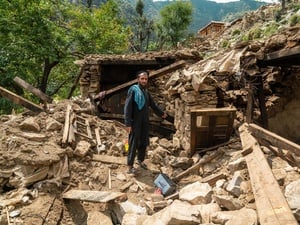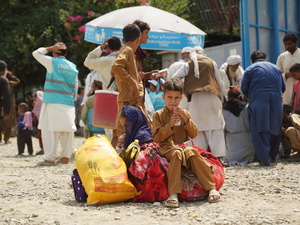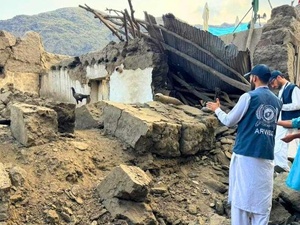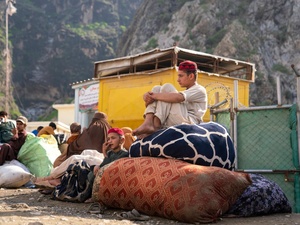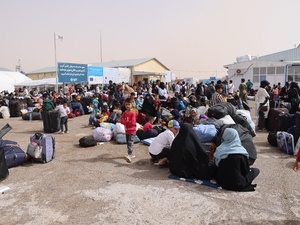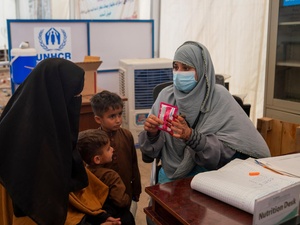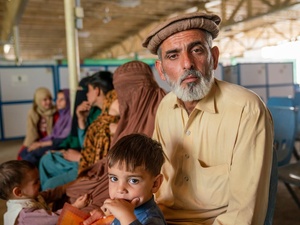UNHCR's Afghanistan shelter programme passes 200,000 home milestone
UNHCR's Afghanistan shelter programme passes 200,000 home milestone
In Afghanistan, our work in helping reintegration of returnees and internally displaced people passed a milestone this week with the completion of the 200,000th home for a returnee family.
UNHCR's shelter programme in Afghanistan began in 2002 and has been an important element in the return of some 4.5 million refugees over the past eight years. It has cost $250 million but has benefited some 1.4 million people - or around a quarter of all returnees.
Despite insecurity, Afghans have continued returning every year from neighbouring Pakistan and Iran, and in significant numbers. The biggest wave of returns was between 2002 and 2005, but 2010 has nonetheless seen return levels exceeding 112,000 people.
The prospect of a secure home is regularly cited by Afghan refugees in Iran and Pakistan as one of their primary requirements before making a decision to return. This year alone, UNHCR has helped more than 17,000 vulnerable returnee families with shelter assistance. Much of the actual work of construction is carried out by beneficiaries themselves.
The return of millions of Afghans has increased the estimated population of Afghanistan by some 20 percent. Returnees have contributed importantly in many economic sectors, bringing skills, know-how, and capital accumulated during their life in exile. But this huge population movement has also challenged the country's socio-economic absorption capacities, particularly on poor rural communities with limited resources.
For that reason, UNHCR's housing programme has focused on rural areas to which significant numbers of families have returned from both Iran and Pakistan. This is reflected in the numbers of housing units across the country - in the Central Region (55,614), the East (47,571) the North and North East (42,243) the South (12,496), the Southeast (17,571) the West: (28,717) and the Central Highlands (2,957).
UNHCR believes that improved security and continued social and economic development will be critical to future return and reintegration perspectives. At present, however, humanitarian conditions remain fragile. As such, due to the continuing high incidence of poor, homeless families within the returnee population, UNHCR's housing programme will continue in 2011 at a similar level to previous years to support the sustainable reintegration of returning Afghan refugees.


